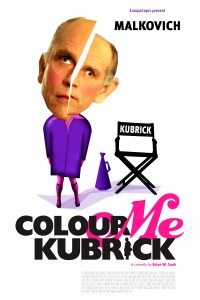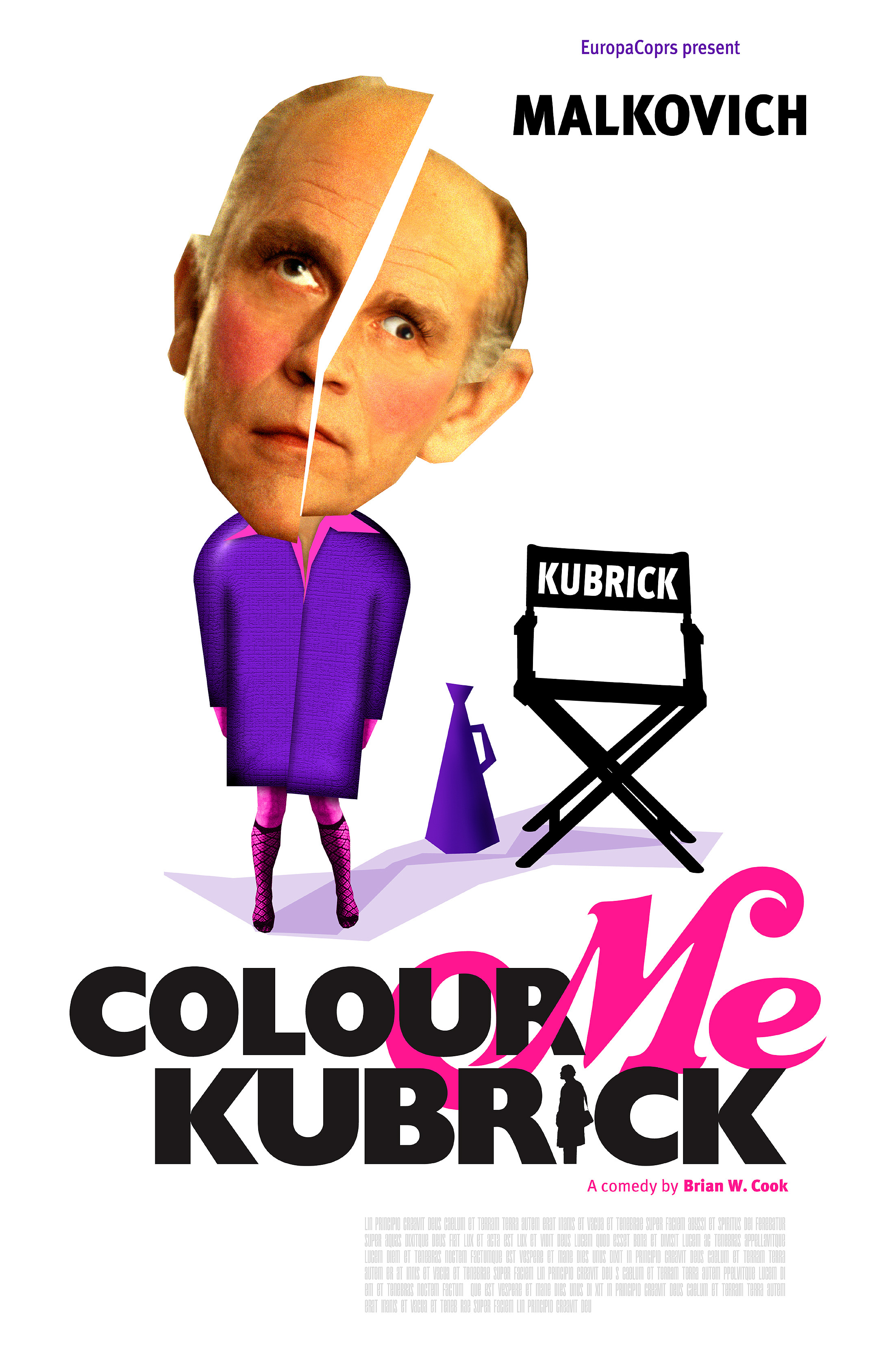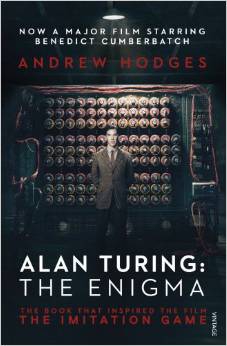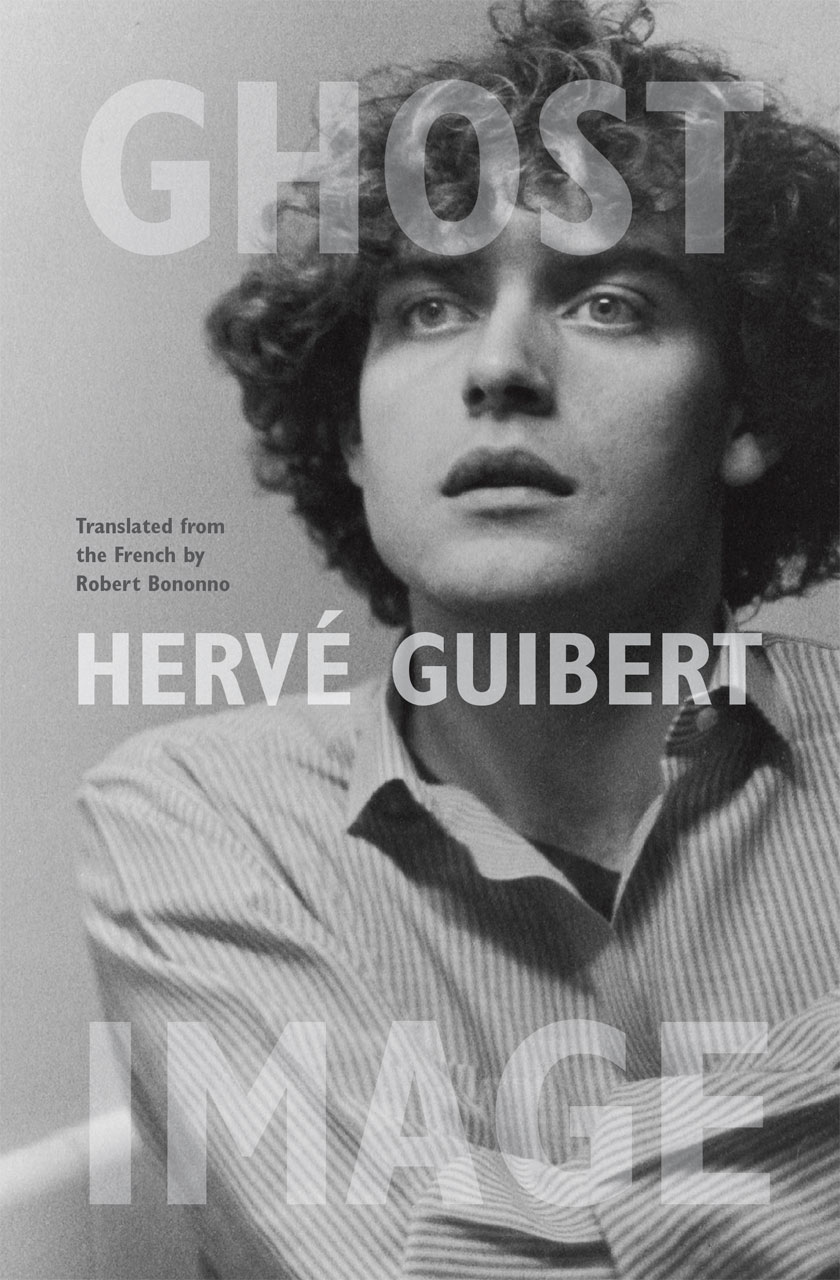 Colour Me Kubrick: A True…ish Story
Colour Me Kubrick: A True…ish Story
Written by Anthony Frewin
Directed by Brian W. Cook
Magnolia Pictures
HAS THERE ever been a more unlikely link between two men than the one between Stanley Kubrick and Alan Conway?
Kubrick, of course, was the legendary, almost mythic director of visionary, brilliant films like Paths of Glory, Dr. Strangelove, and 2001: A Space Odyssey, among others. His vivid, vibrant style was even more striking than his problematic sense of casting. (Ryan O’Neal as Barry Lyndon? Tom Cruise as a college graduate?) And his personal eccentricities only added to the legend. He was a near-recluse, never flew on airplanes, kept thousands of boxes of notes to himself, and on and on.
Conway, on the other hand, was a London nobody—a gay, alcoholic, petty con man who took advantage of Kubrick’s reclusiveness to impersonate him. For years in the 1990’s he fooled an astonishing number of suckers. Rent boys, barflies, respectable middle class types, even people in Britain’s entertainment community were scammed into buying him drinks and meals, sleeping with him, paying his hotel bills, and so on. Far from being suspicious of him, despite the fact that he neither looked like Kubrick nor knew a thing about his films, people were absolutely ravished to receive attention from such an important man.
Colour Me Kubrick tells Conway’s story. And it should have been a fascinating film. It might have said a great deal about the cult of celebrity, about a little man’s yearning to be a big one, about belief and gullibility, about the psychological and emotional relationships between con men and their marks. It was written and directed by two of Kubrick’s close associates, his personal assistant and his assistant director/co-producer respectively. Presumably they knew this story as well as anyone could. Yet the film seems to have no point of view and nothing much to say about Conway, about Kubrick, about celebrity, art, or anything else.
A big part of the problem is John Mal kovich, who plays Conway. Malkovich is a mannered, self-indulgent actor even under the best of circumstances. He needs a strong directorial hand, to put it mildly. Here, he is completely out of control. He minces, lisps, vogues, gushes, poses in fishnet stockings because—that’s what gay men do, isn’t it? And he speaks in a variety of extremely peculiar accents, most of them like nothing ever heard on this planet before. Why he does this is anyone’s guess. Yes, artists do tend to be on the eccentric side. But Malkovich’s Conway-as-Kubrick goes way beyond mere eccentricity and presents a wigged-out weirdo, and a pretty dumb one at that.
kovich, who plays Conway. Malkovich is a mannered, self-indulgent actor even under the best of circumstances. He needs a strong directorial hand, to put it mildly. Here, he is completely out of control. He minces, lisps, vogues, gushes, poses in fishnet stockings because—that’s what gay men do, isn’t it? And he speaks in a variety of extremely peculiar accents, most of them like nothing ever heard on this planet before. Why he does this is anyone’s guess. Yes, artists do tend to be on the eccentric side. But Malkovich’s Conway-as-Kubrick goes way beyond mere eccentricity and presents a wigged-out weirdo, and a pretty dumb one at that.
The script doesn’t help. It might have worked if at least a few of Conway’s victims were fleshed out; that would have given the story some badly needed humanity and some perspective on Conway. But they’re mere thumbnails; they come and go so quickly we learn next to nothing about them, and how they’re affected by being used by Conway is never fully explored. A tantalizing array of actors—Marisa Berenson, Honor Blackman, Robert Powell, and Ken Russell(!)—appear and vanish without having had a chance to leave much of an impression. As a result, the central character’s antics are repetitive to the point of numbness.
Film buffs looking for any trace of Kubrick in this movie will be disappointed. The soundtrack uses smatterings of the music he had used in his own movies, and that’s about it. We hear “The Thieving Magpie,” “The Blue Danube,” “I Want to Marry a Lighthouse Keeper,” and a few more. But it’s used to no particular effect. And the device pretty much disappears after twenty minutes or so, giving way to original music by Bryan Adams.
Kubrick himself was reportedly fascinated by Conway’s scam. At any rate, he never prosecuted the con artist (he died three months before Conway). It’s a pity that we don’t have a hard record of his reactions. For example, it would be fascinating to know what Kubrick made of his impersonator’s gayness. He seems to have had a problematic view of gay men. His only gay characters (apart from a fleeting glimpse of the “dog man” in The Shining and a few faceless same-sex couples in the orgy scene in the baffling Eyes Wide Shut) are a pair of army officers in a brief episode in Barry Lyndon. They mince, lisp, and pose; they love each other and over-emote ludicrously about it; they are so dumb that the title character steals a horse from them without them ever knowing. (This sequence was reportedly Ryan O’Neal’s idea; but it’s Kubrick’s film, and he went along with it.)
How dispiriting it is that more than thirty years later we’re getting those same tired gay portrayals. And how sad that, of all Kubrick’s rich legacy, that’s the one unfortunate bit his disciples have seized on in this film. Alan Conway, strange man and minor villain that he was, must have been more complex and interesting than the grotesque cartoon character presented in this film.






